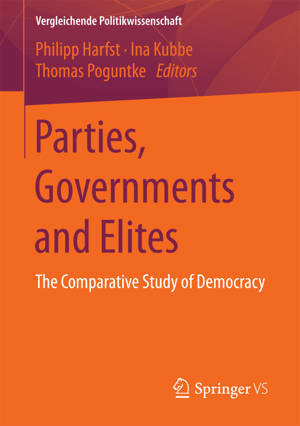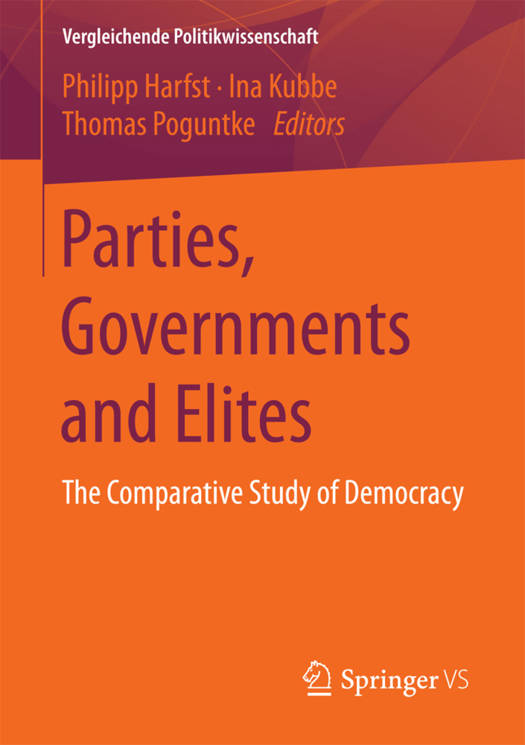
- Afhalen na 1 uur in een winkel met voorraad
- Gratis thuislevering in België vanaf € 30
- Ruim aanbod met 7 miljoen producten
- Afhalen na 1 uur in een winkel met voorraad
- Gratis thuislevering in België vanaf € 30
- Ruim aanbod met 7 miljoen producten
Zoeken
Parties, Governments and Elites
The Comparative Study of Democracy
€ 89,95
+ 179 punten
Omschrijving
Parties, governments and elites are at the core of the study of democracy. The traditional view is that parties as collective actors play a paramount role in the democratic process. However, this classical perspective has been challenged by political actors, observers of modern democracy as well as political scientists. Modern political parties assume different roles, contemporary leaders can more heavily influence politics, governments face new constraints and new collective bodies continue to form, propose new ways of participation and policy making, and attract citizens and activists. In the light of these observations, the comparative study of democracy faces a number of important and still largely unsolved questions that the present volume will address.
Specificaties
Betrokkenen
- Uitgeverij:
Inhoud
- Aantal bladzijden:
- 322
- Taal:
- Engels
- Reeks:
Eigenschappen
- Productcode (EAN):
- 9783658174453
- Verschijningsdatum:
- 5/05/2017
- Uitvoering:
- Paperback
- Formaat:
- Trade paperback (VS)
- Afmetingen:
- 148 mm x 210 mm
- Gewicht:
- 394 g

Alleen bij Standaard Boekhandel
+ 179 punten op je klantenkaart van Standaard Boekhandel
Beoordelingen
We publiceren alleen reviews die voldoen aan de voorwaarden voor reviews. Bekijk onze voorwaarden voor reviews.










